“Not even lockdown can stop us from being in each other’s thoughts and imaginations”: An interview with Truth To Power Café creator Jeremy Goldstein
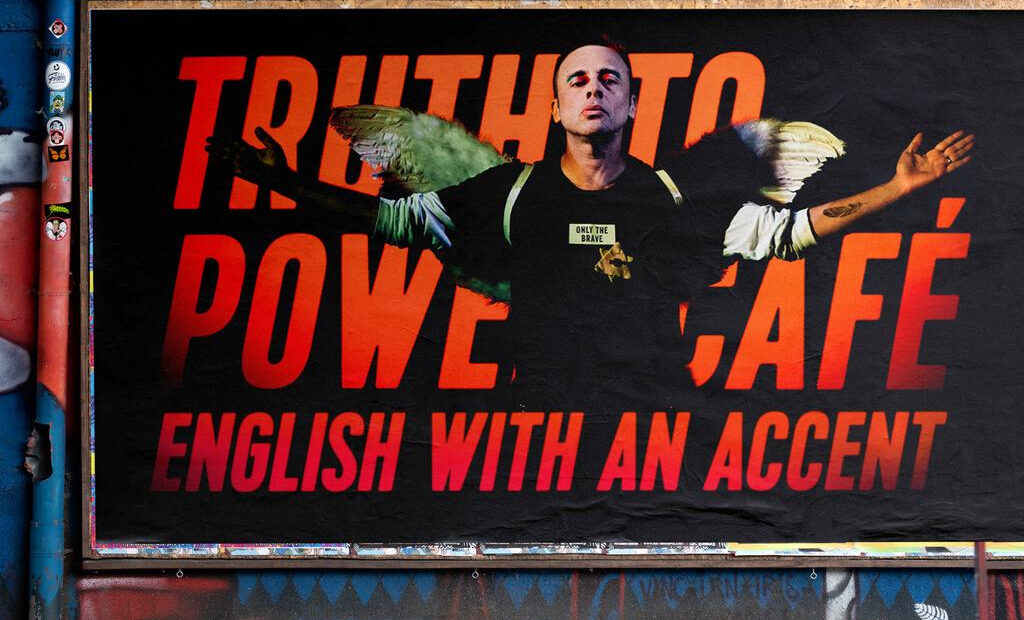
Since launching in 2018, Jeremy Goldstein’s Truth to Power Café has given over 300 people the platform to speak out about who – or what – has power over them. From teachers and parents to institutional structures and coronavirus, the showgives its audience the opportunity to confront the things that have power over them and, through speaking about it, perhaps start to take their power back.
The project features a blend of live testimony, music, memoir and poetry inspired by the philosophical and political beliefs of the Hackney Gang, members of which include the renowned playwright Harold Pinter, Goldstein’s own father and actor Henry Woolf. The gang were outspoken about their belief in asserting the truth to authority and standing up for the disempowered and the marginalised – the same people who are now invited to speak out during each performance.
This October, Truth To Power café will launch it’s No Borders World Tour 2020/21 with a combination of live and streamed events. We had a chat with Jeremy about what he hopes the work will achieve, his own complicated relationship with his father and how the pandemic has affected the project.
Could you tell us a bit about the “truth” part of Truth to Power Café. What are the truths that you want to convey?
Truth to Power Café is a 60-minute performance event during which we ask participants in advance to respond to the question “who has power over you and what do you want to say to them?” before a live audience. Participants can choose to answer from their personal, professional or political lived experience speaking about something important to them that they believe should be important to all of us.
I’m also cast as a participant. I talk of the power my late father Mick Goldstein had over me when he was alive. He was a member of the Hackney Gang – a group of six friends that included the Nobel Prize-winning playwright Harold Pinter, and the actor and poet Henry Woolf, with whom I’ve co-created the show, directed by Jen Heyes.
For 60 years the Hackney Gang held firm in their belief in speaking truth to power. They remained firmly on the side of the occupied, the disempowered and their allies, and so it is these people we invite to appear in the show as participants.
Could you explain to us how “truth to power” theatre works and what the audience can expect?
Four years into the project, we’re at a point now where we believe an entirely new theatrical genre is emerging called “truth to power” theatre, the uniqueness of which is contained within its humility, the carefully chosen symbolism, collective artistic exchange, and the sheer audacity of inviting ten strangers into a theatre space and giving them permission to become authors and performers of their own true stories in front of a live audience. When you combine that with my own story it becomes a very powerful empathetic journey for participants and audiences, which makes for great theatre.
What do you hope Truth to Power Café performances will achieve? Is it a therapeutic experience?
World peace.
The nature of the question is conceived to challenge notions of power and give a voice to people who don’t normally have a chance to speak out. People from marginalised communities tend to want to talk about progressive change, whereas those with privilege and power want to maintain the status quo or have more power.
Above and beyond politics, everyone has their own unique story to tell, and it’s often the more personal stories that I find the most affecting, especially from first-time speakers.
Does the Truth to Power Café format change the relationship between the audience and the performers, and if so, in what sense?
First and foremost, we are artists and theatre-makers putting on a show for an audience. We’re consciously looking for alchemy and intimacy, and to break down that fourth wall which often exists between performer and audience.
It’s hard to put it into words so you need to experience it for yourself, but the show really does empower participants to speak up, stand up and show up for their community. For some participants the experience is life-changing and most feel accomplishment, pride and satisfaction; while audiences bear witness to real-life pain, ambitions, hopes, suffering and determination, which leads them to think about their own truths, communities and relationships.
How do the music, poetry, activism, art and testimonies all loop together to form one show? Is there a certain structure or is it different each time?
We have different participants in every show so no single performance is ever the same. That said, the constants are my monologues, which bookend the participants’ contributions sitting at the heart of the show. My monologues are made up of memoir, music, image, video and original poetry by Henry Woolf which I perform as the real-life son of the Hackney Gang. The show is a real hybrid in that sense. I think of it as a 60-minute performance event in three acts.
Is it important for the person who has the power over you to hear what you have to say – or is simply saying it enough? Would it be possible to give an example?
We live in the post-truth age of the demagogue where fake-news is the new norm. In politics, the oppressed often have to fight for the right to simply say what they are experiencing, and in personal relationships that artificial barrier is also in place. If you have an approach to allowing the conversation to happen, then the chances of change occurring are much higher.
Even though speaking truth to power is a non-violent means of conflict resolution, doing so can put you at risk, so it takes courage. Build up a survival kit of facts, friendship and allies. Make sure you’re on solid ground and work with people you can trust. Read Dictatorship to Democracy – A Conceptual Framework for Liberation by Gene Sharp, which includes 198 Methods of Nonviolent Protest and Persuasion. There is always something we can do.
Has the pandemic changed the vision or feeling behind Truth To Power Café at all?
Everything’s changed since the pandemic.
As lockdown took hold I started to think about how we as artists can contribute to community renewal in the connected space of theatre, both live and online. Our desire to listen and tell true stories about our lives is more important than ever so we took the view that nothing, not even lockdown, can stop us from being in each other’s thoughts and imaginations. Our own immediate response to the crisis was to set up a digital platform. Since we went live with the platform in April, we’ve published nearly 70 videos which have been viewed 70,000 times on Facebook alone.
This year’s digital platform will climax on 10th October with our North American premiere streaming from Montgomery College Cultural Arts Centre in Maryland USA. In the run-up to the US elections, the event unites Truth to Power Café with Venezuelan/US multidisciplinary artist Migguel Anggelo’s visionary new stage work English with an Accent and up to ten community participants cast from within a dozen miles of the White House. 60 people have been involved in the making of this one-of-a-kind streaming event which has been shot in London, New York and at Montgomery to create a unique transatlantic meditation on time, place and community.
One week later, Truth to Power Café will form part of Power Play 2020: Invisible Lines in Singapore and on 16th October we will stream our only live show from London’s Conway Hall with ten UK participants. The Conway Hall event marks the start of a two-year residency in association with Bloomsbury Festival. It’s great to have a London home at last!
Do you consider the digital platform to be journalism, theatre or activism, and is the live show theatre, a political statement or something else?
To me it comes down to the intent of individual participants including me, so it can be one or the other or a combination – you be the judge.
Has the show changed your feelings about your father at all?
I had a very difficult relationship with my father, to the point that we were estranged when he died. Among the many things I’ve learnt from making the show is that our relationships with our loved ones continue to evolve even in death. For me personally, I’ve been able to reconcile the relationship through making the show, which in itself has been life-changing, and a path towards truth and reconciliation in myself. Ultimately the show has become a love letter to the memory of my father and his friends of 60 years, Henry Woolf and Harold Pinter.
Did you know Harold Pinter as a child? Do you think he would like Truth to Power Café?
Harold was my father’s best friend so he’s always been present in my life in one way or another. They met in 1947 in the post-war-torn, working-class world of London’s East End, where they took on bullies and fought with fascists. In later life, they became a lot more politically active in their own ways. Would Harold like Truth to Power Café? I hope so, but I can’t speak for Pinter – no one can.
What part does community activism have in Truth to Power Café?
As well as a theatre-maker and producer, I’m also a long time HIV+ activist with ACT UP (AIDS Coalition to Unleash Power) who are one of the most successful campaign groups of all time. ACT UP formed in response to the AIDS/HIV epidemic of the late 1980s, proving beyond doubt that community activism and direct action works. People really do have the power.
Sophia Moss
Photo: Kate Holmes
Truth to Power Café will be live-streamed from the USA, UK and Singapore as part of the No Borders World Tour. The UK premiere will be live-streamed from London’s Conway Hall on 16th October 2020 as part of Bloomsbury Festival. For further information or to book visit the website here.


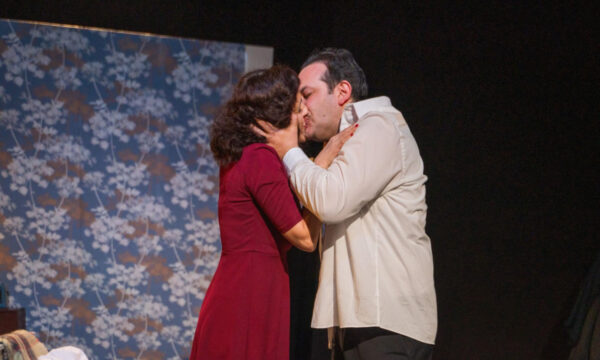
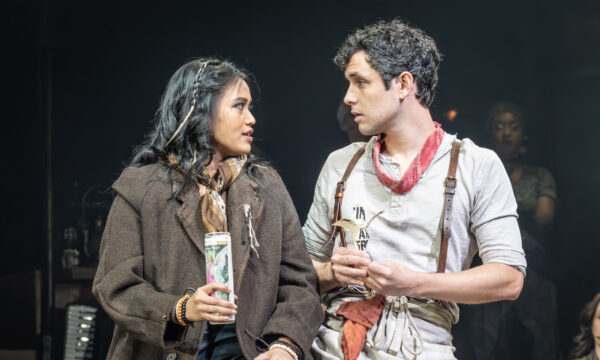
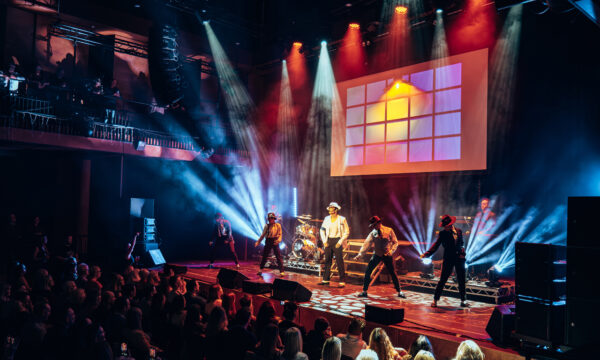
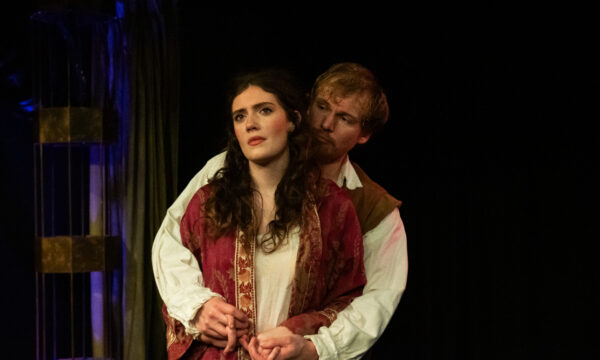
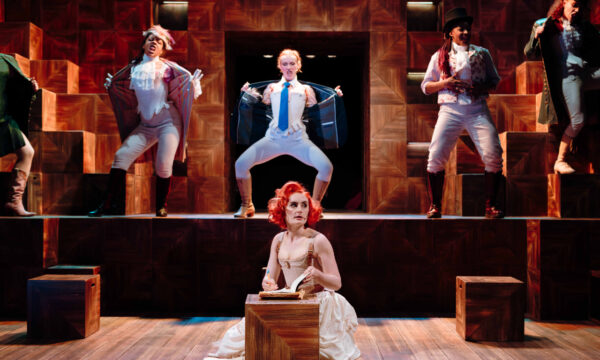
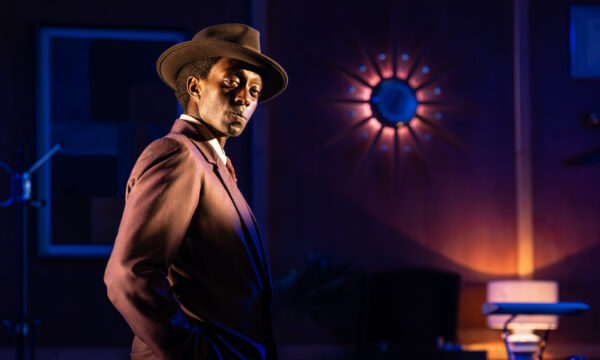
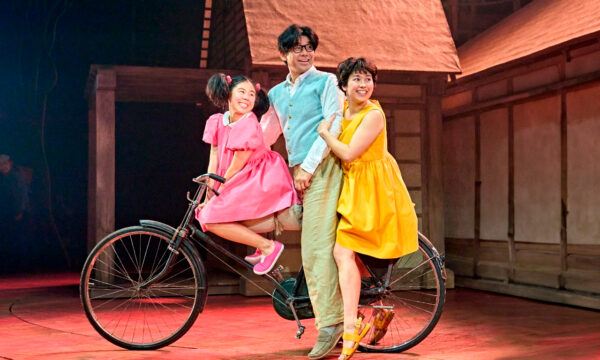

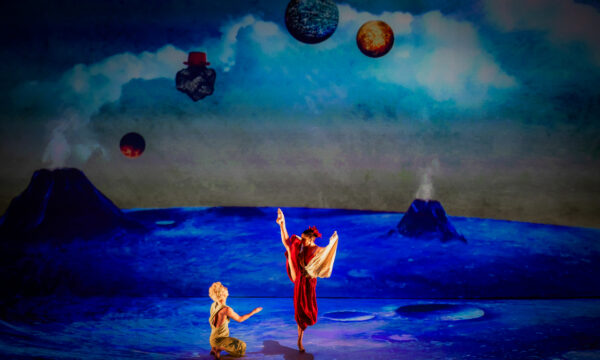











Facebook
Twitter
Instagram
YouTube
RSS